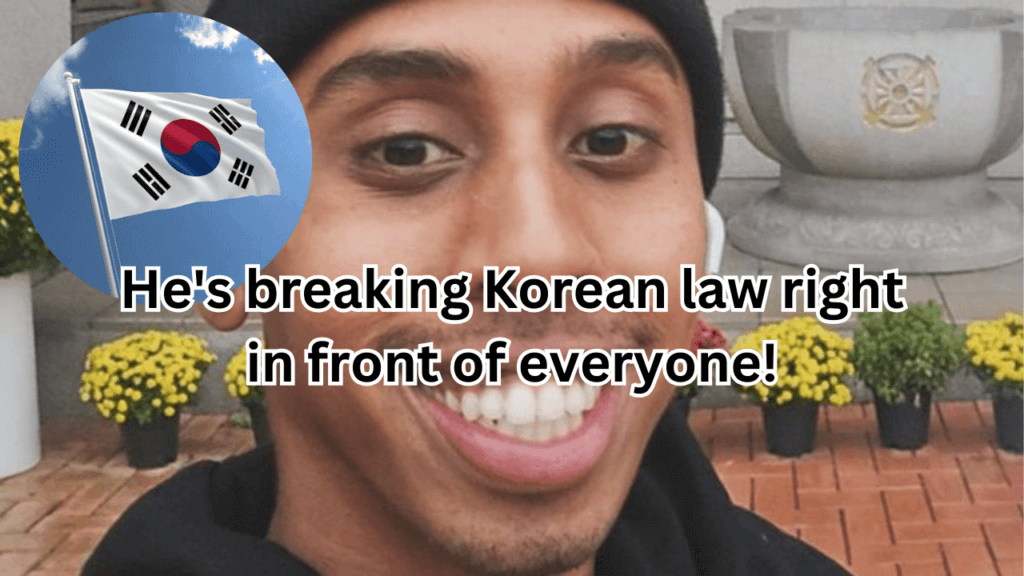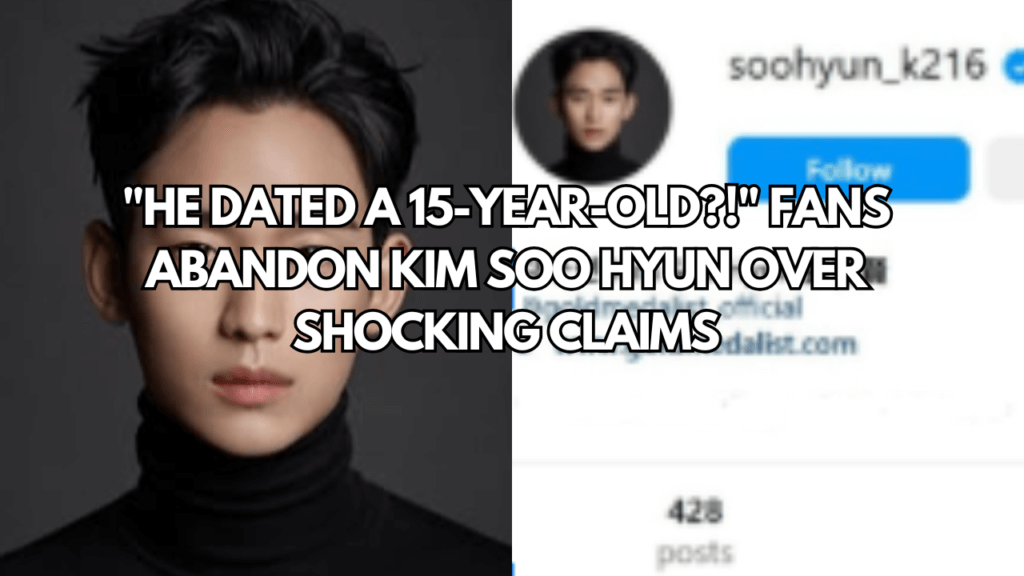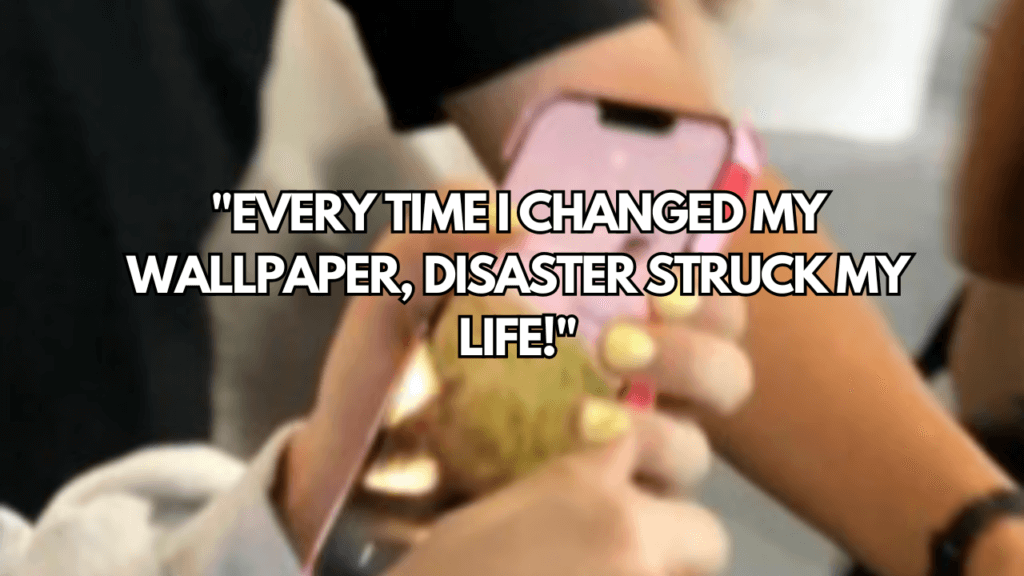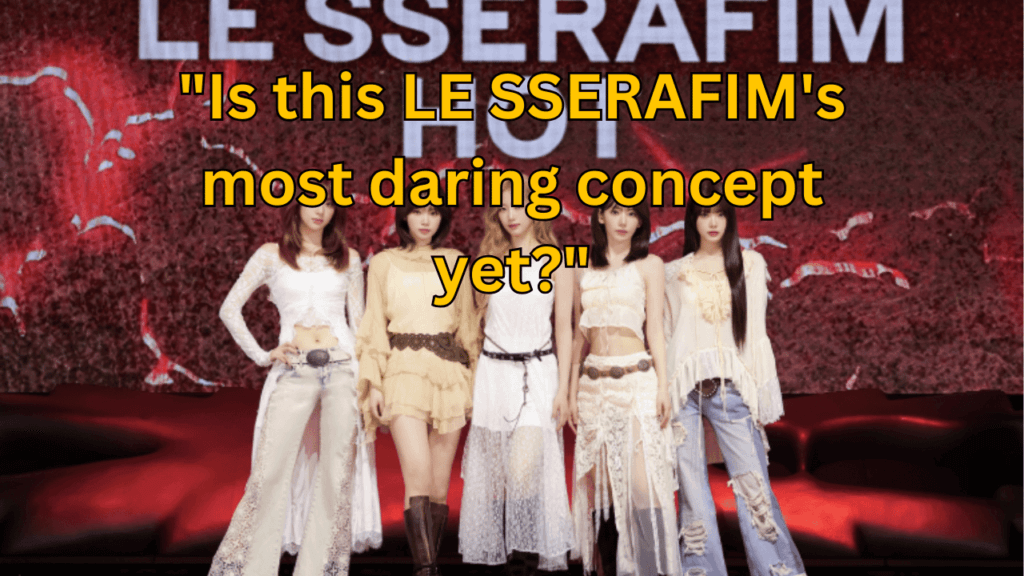Yoon Suk Yeol Protest Controversy Sparks New Backlash Against Johnny Somali
The Yoon Suk Yeol protest controversy has taken an unexpected turn with the appearance of notorious American streamer Johnny Somali. Seoul’s political landscape became even more chaotic when Somali was spotted participating in an anti-impeachment rally supporting President Yoon Suk Yeol on March 27. This latest incident adds to Somali’s growing list of controversial actions in South Korea, further inflaming public opinion against the contentious content creator.
Johnny Somali Korea Scandal Deepens With Political Interference
The Johnny Somali Korea scandal reached new heights when photos surfaced showing the American streamer near Anguk Station by the Constitutional Court. Witnesses captured images of Somali holding a placard distributed by President Yoon’s supporters while shouting anti-Chinese Communist Party slogans. What makes this Yoon Suk Yeol protest controversy particularly problematic is that Korean law explicitly prohibits foreigners from participating in political demonstrations.
This isn’t just about breaking rules. It’s about a pattern of disrespect that has characterized Somali’s time in Korea. His deliberate provocations have struck a nerve with locals who view his actions as mockery of Korean society and values. The streamer appeared to face immediate consequences for his actions when a passerby, recognizing him near Jongno 5-ga Station, reportedly struck him on the head.
Korean netizens have expressed their frustration with comments pointing out the illegality of his actions. “It’s illegal for foreigners to participate in political protests. He should be reported again,” wrote one concerned citizen. Others questioned his continued presence in the country, asking, “Does he live in Korea now?” while another simply stated, “He really just does whatever he wants.”
See Also: 2025 Weverse Con Festival lineup expands with TREASURE, Kyuhyun
A History of Disruptive Behavior in the Johnny Somali Korea Scandal
The Yoon Suk Yeol protest controversy marks just the latest chapter in Somali’s troubling history in South Korea. Last October, he faced prosecution for disrupting operations at a Seoul convenience store. His offenses included blasting loud music, deliberately spilling instant noodle soup on tables, and harassing store employees – all while streaming his antics to online viewers.
Somali’s catalog of disruptive behaviors extends far beyond retail establishments. He has repeatedly caused public nuisances by carrying foul-smelling fish through crowded streets and intentionally disturbing passengers on buses and subways. These actions demonstrate a clear pattern of behavior designed to provoke reactions from unwilling participants in his streams.
Perhaps most egregiously, Somali sparked nationwide outrage during a YouTube livestream by engaging in highly inappropriate behavior toward the ‘Statue of Peace.’ This monument, which commemorates the victims of wartime sexual slavery known as “comfort women,” holds deep historical and emotional significance for many Koreans. His disrespect toward this solemn memorial was viewed as particularly offensive and insensitive to the painful history it represents.
Final Thoughts on the Yoon Suk Yeol Protest Controversy and Johnny Somali
The Yoon Suk Yeol protest controversy involving Johnny Somali raises serious questions about the responsibilities of content creators and the limits of acceptable behavior in the pursuit of online attention. As an American visitor to South Korea, Somali’s repeated violations of both social norms and legal boundaries have created a diplomatic embarrassment that reflects poorly on foreign visitors.
Korean authorities now face increased pressure to address this ongoing situation more definitively. Many have expressed concern that allowing such behavior to continue unchecked sends a troubling message about the consequences—or lack thereof—for intentionally disrespecting Korean culture and laws.
What do you think about this latest Johnny Somali incident? Should foreign content creators face stricter consequences for political interference in their host countries? Share your thoughts in the comments below!






